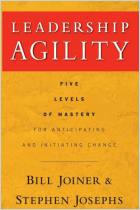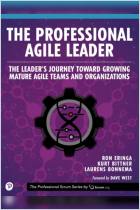Join getAbstract to access the summary!

Join getAbstract to access the summary!
Pamela Meyer
The Agility Shift
Creating Agile and Effective Leaders, Teams, and Organizations
Bibliomotion, 2015
What's inside?
You can prepare your organization to respond to sudden change with agile confidence.
Recommendation
Traditional organizations – those that plan for expected events, rely on formal performance reviews, and require authorizations and sign-offs before making decisions – face increasing risk. Today’s business universe is complex, ambiguous and volatile. Survival requires fast, effective responses. The agility that business consultant and instructor Pamela Meyer advocates can help companies respond to sudden change and challenges with speed and confidence. Agility turns threats into opportunities. Meyer describes how leading organizations thrive in an unpredictable world by developing agile individuals, agile teams and a flexible culture. getAbstract recommends her manual as a leader’s guide to cultural transformation, a career tool for employees and a manual for learning professionals – must reading for CEOs, HR managers, start-ups and small business owners.
Summary
About the Author
Pamela Meyer writes, teaches and consults in the field of agility and innovation.




















Comment on this summary